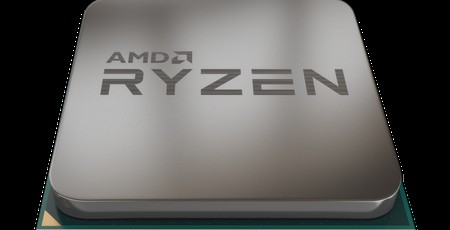
Overclocking
The highest all-core overclock we've managed with a 3rd Gen Ryzen CPU is 4.4GHz with the Ryzen 7 3800X, so that was our goal seeing as you'd probably expect a CPU with the highest boost frequency of a particular range to have the best overclocking potential too. However, using our starting point voltage of 1.425V, all we could manage was 4.3GHz, and with some excessively high temperatures too. We felt the CPU deserved some extra tweaking, though, so we set about reducing that voltage to reign in the temperatures and boost the frequency a little further. In the end we dropped the vcore to 1.375V but managed to reach an all-core overclock of 4.35GHz, which offers a 450MHz advantage over the lowest all-core boost we observed. It will depend again, then, on what your priorities are.
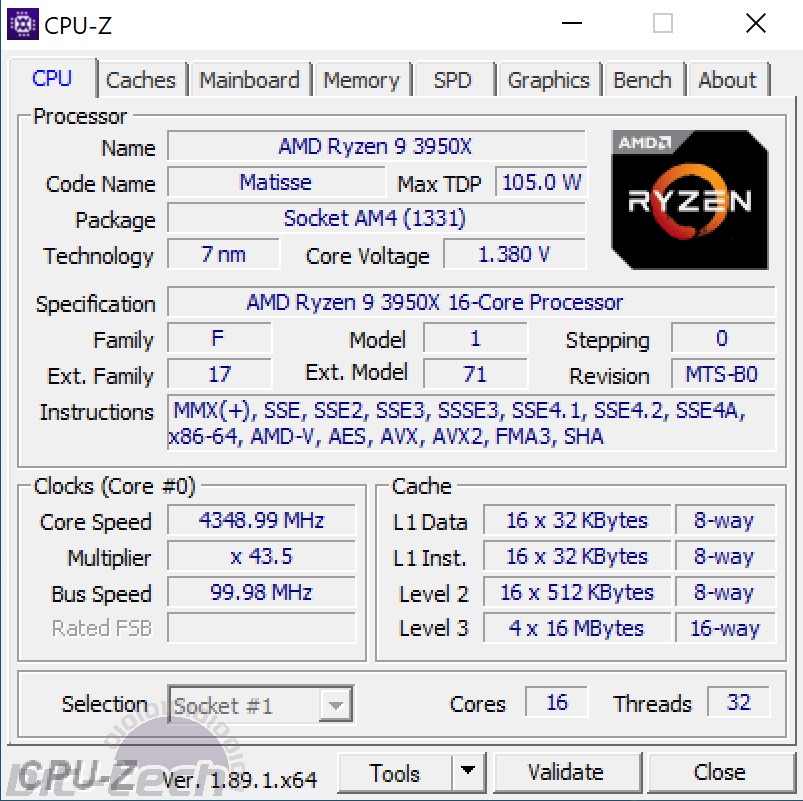
If you want to retain that massive 4.7GHz single-core boost frequency, then you'll need to run the CPU at stock speed. For maximum multi-threaded grunt, you'll likely want to apply a manual overclock. We didn't have time to try out the various automatic overclocking tools in the 3rd Gen Ryzen toolbox, but we'd imagine they wouldn't be able to match the 4.35GHz we managed. However, for a multi-purpose system we'd probably give PBO and Auto Overclocking a try, as you'd maintain that 4.7GHz peak boost and probably raise the all-core boost to close the gap on our manual overclock.
Performance Analysis
We should start by saying that as this is likely the last and also the most significant mainstream CPU we'll be testing from the 3rd Gen Ryzen range, we felt it important to adhere to AMD's recommendations of using the latest AGESA update, specifically 1.0.0.4, with the Ryzen 9 3950X. As this could potentially impact performance compared to the rest of our results, which were undertaken with our original launch system to keep things comparable, we've retested the Ryzen 9 3900X in a few benchmarks at stock speed to see just how much of an impact the new BIOS has compared to the original. In the select benchmarks we re-ran, there wasn't much difference, with a couple of seconds added to the HandBrake transcode time, a hundred points or so added to the PCMark 10 Image Editing score, and tit-for-tat when it came to minimum and average frame rates in Dota 2.

Ryzen 9 3950X vs. AM4 and Intel LGA 1151 CPUs
We'll start with a comparison to current and older Socket AM4 CPUs, and Premiere Pro was surprisingly not a chart-topping result, with the Ryzen 9 3900X only a little behind and the Ryzen 9 3950X, which was only around 25 percent quicker than the Ryzen 7 2700X, a CPU with half as many threads. It's fairly clear Intel still enjoys a lot of optimization here, but equally, other aspects may be coming into play seeing as the only CPUs that beat it were the Threadripper 2950X and Core i9-9980XE. Still, it's the fastest mainstream CPU in this test, albeit by small amounts compared to the Core i9-9900KS and Ryzen 9 3900X.
HandBrake was far less selective and the Ryzen 9 3950X rocketed to the top of the graph. Again, the Ryzen 9 3900X wasn't that much slower, but HandBrake scales poorly after eight cores, so this is to be expected. Even so, the Ryzen 7 2700X saw its time nearly cut in half, and the Core i9-9900KS is over 30 percent slower. It was a massive result in PC Mark 10 too, with the image editing test offering decent gains over the Ryzen 9 3900X, although far from perfect scaling when you look at the proximity to the Ryzen 7 3800X and Ryzen 7 2700X.
With a 4.7GHz boost, which we actually saw regularly, it wasn't surprising to see the Ryzen 9 3950X top the Cinebench single-threaded test, and interestingly, the new BIOS also saw the Ryzen 9 3900X drop back from its original score of 421 here too. Cinebench was a masterclass of power compared to the rest of the mainstream CPUs, with a huge amount more performance on offer too.
In Dota 2, the 16-core CPU was just about the quickest AMD mainstream model, and only Intel CPUs with eight cores or more and sporting 4.5GHz+ boost frequencies bettered it, but all bar the overclocked Core i9-9900KS were within 11 percent. Far Cry 5 saw less of an advantage for Intel, with the Ryzen 9 3950X matching the stock speed 99th percentile minimum frame rate of the Core i9-9900KS, although the latter managed a higher average frame rate. The numbers were nudged up a little from the rest of the 3rd Gen Ryzen stack, but certainly not enough to warrant an upgrade. The higher frequencies and core count saw it compete with the best Intel had to offer in Civilization VI, offering reasonable gains to the average turn time, while Time Spy loved the higher frequency and greater number of cores, handing the top spot to the Ryzen CPU and toppling the Core i9-9900KS in the process.
Ryzen 9 3950X vs. HEDT CPUs
There are two parts to this equation, and the first is the battle against the Core i9-9980XE, Intel's current HEDT flagship (for the next week and a bit, at least). Premiere Pro remains the Intel HEDT CPU's domain, and it was noticeably quicker than the Ryzen 9 3950X here - as was the Threadripper 2950X. We were honestly surprised here and even re-ran the results, but our 4K video export definitely seemed to enjoy some advantages on the quad-channel systems as well as benefiting from the additional two cores and four threads offered by the Intel 18-core. The opposite was true in HandBrake, where the Ryzen 9 3950X was completely dominant against these CPUs, just as it was in the PCMark 10 image editing test, Cinebench, POV-Ray, and Blender at stock speed. These are huge scalps for AMD, and it doesn't bode well for Intel's Cascade Lake-X, even with the price cuts, as frequency and IPC gains are expected to be slim, meaning the Core i9-10980XE is unlikely to add much to the current generation's scores.

The Core i9-9980XE's saving grace was its 4.5GHz overclock, which meant it was able to match the AMD CPU in HandBrake and Cinebench, better it in Blender, and come close in POV-Ray, with the Threadripper 2950X lacking that ability and languishing in a distant third or fourth place. Games were a mixed bag. The Threadripper 2950X was never really in contention, but the Core i9-9980XE's lowly all-core boost landed it way down the graph in Far Cry 5, recovering to match the AMD CPU once overclocked. The Intel CPU was quicker in Dota 2 and topped the chart in Civilization VI too, but it lagged behind in Time Spy. At stock speed we'd have to hand it to the AMD CPU, but once overclocked, the Intel CPU was slightly better overall, as you'd expect it to be given the price difference.
The best reason to recommend the Ryzen 9 3950X over the Core i9-9980XE, though, is power consumption and heat. At stock speed, the Intel CPU draw an additional 150W under load and more than 230W more once overclocked with our 240mm liquid cooler becoming noticeably warmer too. When those figures are added to 242W and 340W respectively for the AMD CPU's readings, you can appreciate just how much more power the Intel CPU is drawing to hit those numbers. Planning a small PC with limited cooling potential, but want decent multi-threaded grunt? It's a clear choice.
Conclusion
There was never much doubt that the Ryzen 9 3950X was going to wipe the floor with the rest of the mainstream stack, and that's mostly turned out to be true. It's faster, with a couple of close calls such as Premiere Pro, where it wasn't that much quicker than the Ryzen 9 3900X, but elsewhere it's a monster. Again, it's the fastest Zen 2 CPU in games, but often not by much. The real gains are in multi-threaded performance and power efficiency, specifically against the two HEDT CPUs it has most in common with. The Core i9-9980XE is a worthy foe in terms of performance, but only really competes once overclocked, with the exception of Premiere Pro.
This maybe bodes well for Cascade Lake-X in being able to offer more performance and for a closer price point than the Core i9-9980XE, but you'd have to really want those extra PCIe lanes and memory channels to go for it. The fact that, in theory, the Ryzen 9 3950X should perform well on a decent B450 motherboard too and has the added benefit of far more motherboard choice in general, AMD's new flagship is highly compelling across the board and every bit as game-changing as we thought it would be. The only sticking point is that outside of multi-threaded tasks, the Ryzen 7 3700X and above offer similar performance, especially once overclocked. Other than this, AMD has stuck a big stick into the mainstream CPU market pool and given it a big stir, and anyone running an older and/or Ryzen 5 or Ryzen 3 AM4 CPU now has a very clear and attractive upgrade path - the Ryzen 9 3950X is over four times as fast as the Ryzen 5 2400G in Cinebench R20. Our only criticism is that the box doesn't really do justice to the monster that lurks inside.


MSI MPG Velox 100R Chassis Review
October 14 2021 | 15:04

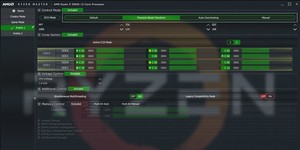
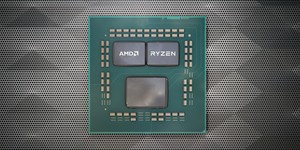
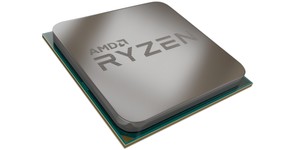




Want to comment? Please log in.